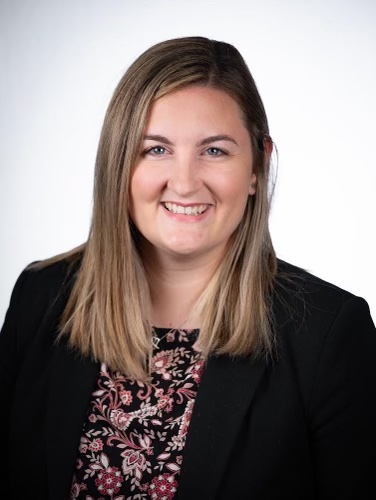Q & A with Dr. Stephanie Golding, DPM and Foot and Ankle Surgeon
Stephanie grew up in Montgomery County, Maryland, and in 2016 earned a B.S. from UMD in Biological Sciences with a minor in Human Development. She attended Temple University for Podiatry School and went on to do a three-year foot and ankle residency in Orlando, Florida. She now practices with an orthopedic group located in Winchester, Virginia.
Why Podiatry?

For me, I knew that I wanted to go into surgery and I didn’t care about treating specific parts of the body. At first, I was looking to go to allopathic or osteopathic medical school, not podiatry school. Podiatry gave me a more direct pathway to surgery in a program with more overall surgical spots available. Being a practitioner also gave me the ability to be my own boss and make my own decisions in the operating room.
How is the layout of podiatry school similar/different from traditional medical school?
Podiatry school has a similar format to traditional medical school, with two years of classes and another two years of clinical rotations. Our classes still cover whole body medicine; however, rotations are vasculature, wound repair, internal medicine, and others that are foot and ankle specific.
What are some challenges you face in podiatry school?
I think any medical student is going to have a bit of a tough transition into medical/podiatry school. The time commitment to your studies is much larger than in undergraduate. Once you find a schedule that works for you, and recognize you’re going to have to make sacrifices while your friends and peers may be doing fun things, it becomes much easier to handle the workload.
What drew you to your particular school?
I did an internship program at the Temple University Podiatry School and found that this was a place I could see myself. In terms of the academics, Temple’s program gives students hands-on experience by the third year at the on campus clinic, where other schools send you to non-local hospitals and clinics. It also was closer to home so it didn’t feel too far.
What extracurricular activity do you think best prepared you for medical school?
I feel like diversifying your extracurricular arsenal helps you balance things that you enjoy. I was involved in Greek life, started a dance club, and was part of a non-profit where we went on mission trips. This enabled me to be happy and well-balanced.
What hobbies do you have outside of medicine?
It’s a bit hard to manage hobbies throughout residency as it’s very intense. Now that I have finished residency, I now have a golden retriever puppy, and have recently gotten engaged so wedding planning has taken up a good amount of time.
What advice would you give to your younger self?
There’s a light at the end of the tunnel. If you set your mind to something, it may not always be easy but you will get there.
Is there anything you would like to share with us that we did not ask?
The podiatry world in general is not well known. Keep your options open--there are ways to become a doctor or surgeon other than just allopathic/osteopathic medicine. If you know you want to do surgery and are also interested in orthopedics, podiatry is a great fit for you. Not to mention it is an easier admission process than allopathic medicine.


